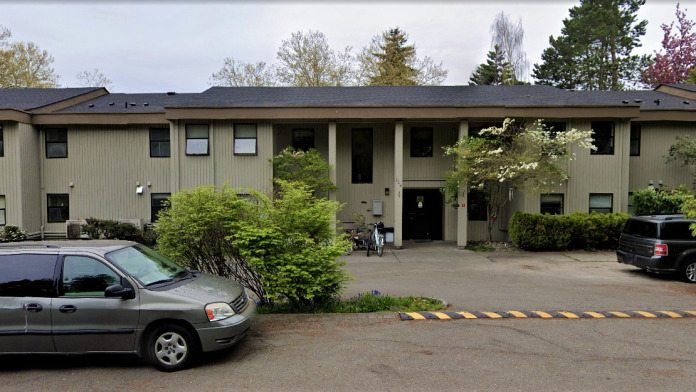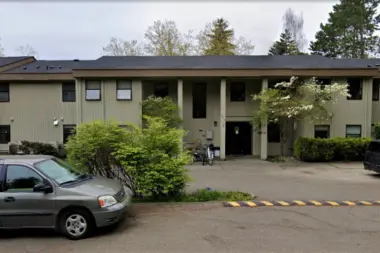The staff is friendly, the location of the center is perfect makes it very accessible for many people. The support I received was very good, without them I could never have achieved it, now sobriety is a reality for me.
About Cascade Hall
Community Psychiatric Clinic–Cascade Hall offers comprehensive residential services for adults with mental illness as well as co-occurring mental health and addiction disorders in Seattle, Washington. Specialized programs for seniors, young adults, and military personnel are available. Additional services include nicotine replacement programs, aftercare planning, and transitional support.
The inpatient program at Cascade Hall provides round the clock clinical care for residents with severe and chronic mental illness as well as co-occurring addiction disorders. Mental health assessments, personalized treatment planning, and ongoing case management are included. Clients in residential care receive intensive, trauma informed, CBT and DBT based psychotherapy, including individual, group, couples, and family counseling. Evidence based complementary therapies, including experiential therapy, are available. They also prioritize recovery focused life skills, including courses in self care, wellness, coping, disease management, and relapse prevention.
Cascade Hall ensures a robust continuum of care to support sustained recovery and promote successful community, family, and workforce reintegration. Aftercare planning and transitional support services may include vocational training, career counseling, peer coaching, and medical, mental health, and social service referrals. Assistance in transitioning into sober living, outpatient, and community-based care is available.
Community Psychiatric Clinic–Cascade Hall is CARF accredited. They accept private insurance, military insurance, Medicare, Medicaid, and self pay. Sliding scale payment assistance is available.
Latest Reviews
Rehab Score
Gallery


Other Forms of Payment
Private insurance refers to any kind of healthcare coverage that isn't from the state or federal government. This includes individual and family plans offered by an employer or purchased from the Insurance Marketplace. Every plan will have different requirements and out of pocket costs so be sure to get the full details before you start treatment.
Self-pay involves paying for treatment out of your own pocket. You can use savings or credit, get a personal loan, or receive help from family and friends to fund your treatment. If you don't have insurance or your insurance plan doesn't cover a specific program, self-pay can help ensure you still get the care you need.
Medicare is a federal program that provides health insurance for those 65 and older. It also serves people under 65 with chronic and disabling health challenges. To use Medicare for addiction treatment you need to find a program that accepts Medicare and is in network with your plan. Out of pocket costs and preauthorization requirements vary, so always check with your provider.
Medicaid is a state based program that helps lower-income individuals and families pay for healthcare. Medicaid covers addiction treatment so those enrolled can use their coverage to pay for rehab. When a program accepts Medicaid the client often pays very little or nothing out of their own pocket.
Addiction Treatments
Levels of Care
CPC’s 24-hour staffed residential facilities provide a safe, stable environment in which chronically mentally ill adults can achieve personal goals and improved quality of life. Highly trained staff offer 24-hour supervision and care, opportunities to develop interpersonal, social, and daily living skills, symptom and medication management, pre-vocational skill building, and vocational training. When individuals are ready, they help them work toward achieving more independent living situations.
Rehab aftercare programs support clients as they focus on maintaining their sobriety after intensive (often inpatient) treatment. These programs adhere to a model of life-long recovery, addressing addiction disease as a chronic, relapsing condition. Rehab aftercare services vary widely based on the specific and evolving needs of the client, but often include peer coaching, relapse prevention support, and 12 step program induction. Clients, case managers, and care teams typically collaborate on long-term care plans.
CPC provides a variety of specialized housing options with case management support services for individuals who do not need 24-hour supervised care, but do require more support than can be found in regular low-income housing. Accessible, affordable and safe community-based housing resources are provided according to client preference, eligibility requirements, and clinical need. CPC has over 30 housing sites located throughout King County including apartments and community housing. CPC is also able to provide a number of Shelter Plus Care and subsidized set-aside apartments and collaborates with many other housing providers to ensure access to specialized housing.
At certain points in the recovery process, it's important to have support available 24/7. 24-hour clinical care offers a safe environment in which to recover from drug or alcohol addiction in peace, knowing medical detox and other treatment will happen with professionals on hand.
Treatments
Many of those suffering from addiction also suffer from mental or emotional illnesses like schizophrenia, bipolar disorder, depression, or anxiety disorders. The Substance Use Disorder Services (SUDs) program serves adults with co-occurring disorders with a variety of functioning levels due to either substance use disorders or mental health concerns at several outpatient locations.
Mental health rehabs focus on helping individuals recover from mental illnesses like bipolar disorder, clinical depression, anxiety disorders, schizophrenia, and more. Mental health professionals at these facilities are trained to understand and treat mental health issues, both in individual and group settings.
Programs
Adult rehab programs include therapies tailored to each client's specific needs, goals, and recovery progress. They are tailored to the specific challenges adult clients may face, including family and work pressures and commitments. From inpatient and residential treatment to various levels of outpatient services, there are many options available. Some facilities also help adults work through co-occurring conditions, like anxiety, that can accompany addiction.
Young adulthood can be an exciting, yet difficult, time of transition. Individuals in their late teens to mid-20s face unique stressors related to school, jobs, families, and social circles, which can lead to a rise in substance use. Rehab centers with dedicated young adult programs will include activities and amenities that cater to this age group, with an emphasis on specialized counseling, peer socialization, and ongoing aftercare.
Recovery is most successful when clients feel accepted and validated by their peers and treatment providers. Facilities that offer LGBTQ-inclusive programming are committed to creating a safe space where everyone can grow and recover without fear of judgment or discrimination. They will have dedicated policies in place to create a safe and supportive environment that fosters free expression.
Community Psychiatric Clinic’s Veterans Services provide a continuum of outreach, treatment, housing and residential rehabilitation for veterans and their families from all major branches of the military. Whether you, your loved one, or an outside provider has referred you to CPC, your first step is to contact their Veteran Services team. Their Assessment team can answer your questions and determine if our services are right for you.
Clinical Services
Cognitive Behavioral Therapy (CBT) is a therapy modality that focuses on the relationship between one's thoughts, feelings, and behaviors. It is used to establish and allow for healthy responses to thoughts and feelings (instead of unhealthy responses, like using drugs or alcohol). CBT has been proven effective for recovering addicts of all kinds, and is used to strengthen a patient's own self-awareness and ability to self-regulate. CBT allows individuals to monitor their own emotional state, become more adept at communicating with others, and manage stress without needing to engage in substance abuse.
Dialectical Behavior Therapy (DBT) is a modified form of Cognitive Behavioral Therapy (CBT), a treatment designed to help people understand and ultimately affect the relationship between their thoughts, feelings, and behaviors. DBT is often used for individuals who struggle with self-harm behaviors, such as self-mutilation (cutting) and suicidal thoughts, urges, or attempts. It has been proven clinically effective for those who struggle with out-of-control emotions and mental health illnesses like Borderline Personality Disorder.
Group therapy is any therapeutic work that happens in a group (not one-on-one). There are a number of different group therapy modalities, including support groups, experiential therapy, psycho-education, and more. Group therapy involves treatment as well as processing interaction between group members.
In individual therapy, a patient meets one-on-one with a trained psychologist or counselor. Therapy is a pivotal part of effective substance abuse treatment, as it often covers root causes of addiction, including challenges faced by the patient in their social, family, and work/school life.
Trauma therapy addresses traumatic incidents from a client's past that are likely affecting their present-day experience. Trauma is often one of the primary triggers and potential causes of addiction, and can stem from child sexual abuse, domestic violence, having a parent with a mental illness, losing one or both parents at a young age, teenage or adult sexual assault, or any number of other factors. The purpose of trauma therapy is to allow a patient to process trauma and move through and past it, with the help of trained and compassionate mental health professionals.
Research clearly demonstrates that recovery is far more successful and sustainable when loved ones like family members participate in rehab and substance abuse treatment. Genetic factors may be at play when it comes to drug and alcohol addiction, as well as mental health issues. Family dynamics often play a critical role in addiction triggers, and if properly educated, family members can be a strong source of support when it comes to rehabilitation.
The Community Support Services (CSS) program provides services to assist clients to live, work, learn, and participate fully in the community as independently as possible and to support their recovery from mental illness. The Clean Start program provides daily therapeutic groups, positive modeling, and recreational activities and promotes positive life skills such as laundry, shower facilities, one-on-one meetings, help with housing, and social ideas for integration.
Experiential therapy is a form of therapy in which clients are encouraged to surface and work through subconscious issues by engaging in real-time experiences. Experiential therapy departs from traditional talk therapy by involving the body, and having clients engage in activities, movements, and physical and emotional expression. This can involve role-play or using props (which can include other people). Experiential therapy can help people process trauma, memories, and emotion quickly, deeply, and in a lasting fashion, leading to substantial and impactful healing.
Amenities
-
Residential Setting
-
Private Setting
Staff & Accreditations
Staff
Alan Hernandez
Board President, Tribal Social Work, Skokomish
Caelen Aanecker
Board VP, Attorney
Ayorinde Ajayi
Healthcare Leader
Chris Szala
CEO, Community House
Steve Fernald
Respiratory Therapist, Seattle Rehab
Accreditations

The Commission on Accreditation of Rehabilitation Facilities (CARF) is a non-profit organization that specifically accredits rehab organizations. Founded in 1966, CARF's, mission is to help service providers like rehab facilities maintain high standards of care.
CARF Accreditation: Yes
Contact Information
204 NE 94th Street
Seattle WA, 98115









